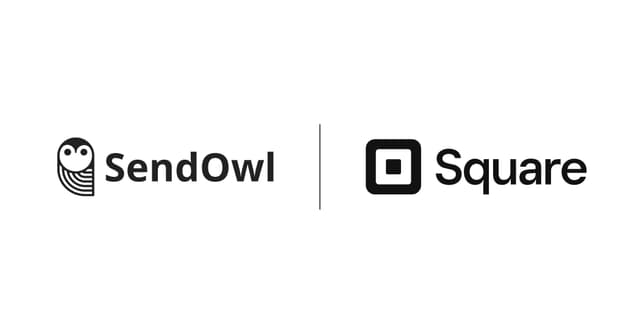
How to Sell Software Online & Keep Your Profits
You want to sell software online, and you need it to be easy and profitable. Fair enough. In this article we'll concentrate on how you can sell software online from your website, blog or anywhere you can paste a link. We cover important issues such as license keys, offering free software updates, pricing, and choosing to bill people as a one-off or on a recurring basis.
You want to sell software online, and you need it to be easy and profitable. Fair enough. In this article we'll concentrate on how you can sell software online from your website, blog or anywhere you can paste a link. We cover important issues such as license keys, offering free software updates, pricing, and choosing to bill people as a one-off or on a recurring basis.
Advantages of selling software direct from your website
You could sell your software through a third party platform that 'resells' your product and takes a hefty cut of your profits.
However, selling direct from your website, blog, or social media has a number of advantages:
- Keep nearly all of your profits (usually between 90-95%, once digital delivery and payment processing fees are subtracted)
- Build a relationship with your audience, who are then more likely to buy again from you or keep subscribing to your SaaS company
- Ensure your product security with license keys, time limited download links and the ability to block people by email, IP address or region
- Sell beta products, if you like, and offer free updates at any point
- Choose to ask people to pay for a one-off product or on a regular basis. Even allow people to pay what they like (PWYWP), with a minimum price for peace of mind.
- Sell to customers all over the world by having a multi-language checkout and accepting payment via credit or debit cards, Paypal, European payment options, BitPay or ApplePay

Sell your software to anyone, anywhere
How to sell your software online
Sign up with a payment gateway
To sell your software direct you need to sign up with a payment gateway such as PayPal or Stripe (Stripe is particularly good for credit and debit card processing). Digital delivery companies traditionally don't also work as payment processors. This is because payment processing requires considerable legal compliance and expertise. Digital delivery companies prefer to concentrate on what they do best and partner with payment processing companies instead.
As a guide Stripe charges 2.9% + 30cents per transaction (cheaper if you're in Europe: 1.4%), with no set up cost or monthly fee. Signing up is straightforward.
Consider your options
You can sell software direct from your blog, website or anywhere you can paste a link if:
- You build your own checkout and manually deliver your product to people
- Add a PayPal button and manually deliver your product to people
- Add a PayPal button or similar and sign up with some kind of free digital delivery app
However, the first two options are time-intensive and off-putting to customers who want instant delivery and a choice of payment options. The third option is easier, but probably too basic for your needs and may not be very secure.
If you are serious about building a scalable business then consider signing up with a software savvy digital delivery service like SendOwl.
This type of digital delivery company at a very basic level:
- Integrates with your payment gateway (s)
- Provides a mobile-optimised checkout
- Arranges secure and automated delivery of your software

Digital delivery providers like SendOwl also do a whole lot more, including providing low-cost marketing options such as one-click upsells, discounts, cart abandonment and gifting, linking up with all your other marketing, membership and mailing list services, and providing essential security features such as license keys and time-limited downloads.
The customer experience when buying your software
By selling direct from your website, blog or anywhere you can paste a link, you can make it very easy for your customers to give you money. This is a good thing!
- They select a Buy Now or Add to cart button (the latter is better if you have a few complementary products).
- They see a simple mobile-optmised checkout in their own language, with different payment options.
- They enter a few simple details and payment is complete
- They see a pop up window that allows them to download their software immediately – or they can click a link in an email
Avoid a checkout experience that adds friction by:
- Asking for unnecessary information
- Not working well on mobile
- Having a confusing user interface
- Just showing payment instructions in English if your customers speak a different language
Licenses for selling software online
If you don't want people to simply download your software and pass it on (even sell it on) then make sure you add a unique one-off license key to each product. In terms of security, license keys are fairly effective without being too annoying for your legitimate customers. It isn't a big ask for your customers to fill in one extra content field for a license key.
You can create your own license key system if you want, as discussed in this Stack Overflow exchange. However, if you don't have the time, patience or programming skill, then you're best using a third party like SendOwl.
You can manage license keys in these three different ways with SendOwl:
- We can automatically generate random license keys for you
- You can upload license keys to our server and we'll allocate them one at a time when you take an order
- We can fetch license keys from your server as your orders come in
There is no extra cost for using license keys with SendOwl.
Sell as a one-off product or on a subscription basis
Make sure your digital delivery company makes it easy for you to sell your software as a one-off or as a subscription via recurring billing.
If you're selling your software as a subscription, then look for a digital delivery company that offers free and paid trials, a wide range of recurring cycles and email notifications when a charge, failed charge or expired card occurs, plus a sophisticated reporting and analytics section.

Sophisticated analytics and reporting will help you measure the success of your marketing tactics
Offer free software updates
This is a 'must have' feature for many software sellers with a loyal customer base. Offer existing customers free updates to the most recent version of your software and keep them happy.
It's usually in your interests that customers upgrade anyway: customers on older versions of your software might cost you more in terms of support.
Get marketing
You might have created the best product in the world, but if nobody knows about it, then your sales will be disappointing. We created The Beginner's Guide to Marketing to give you a few introductory pointers.
If you'd like more information on marketing your digital product see our in-depth article: How to sell digital products (the definitive guide 2017).
Offer pricing packages
Even if you're selling software as a one-off product, then consider whether you can offer pricing packages for different user groups.

Pricing packages are an effective way to maximise revenue as well as giving your customers the features they need.
For more information on pricing read out data-led article: How much should I charge for my digital product?
Get people to sell your software for you
Partnering up with people who like and understand your product, and can reach customers that you can't, is a useful way to increase your revenue as well as increase market penetration. To formalise this process, so everyone knows where they stand and you don't have to spend ages on the paperwork, start your own affiliate scheme.
If you'd like to find out more about what an affiliate scheme is, how it works and how to set one up then read our introductory affiliate scheme article.
SendOwl offers an in-built affiliate scheme, at no extra cost, so you don't even have to sign up for another service. SendOwl does the lot.
Good luck – and try us out for free
Why not join other software sellers in choosing SendOwl to easily, quickly and affordably sell and market your software? We offer a free 30 day trial so you can see if we're a good fit. Or check out our features page below.

Matt Wells is the Head of Operations at SendOwl, a digital product delivery and access solutions for creators, solopreneurs and SMBs. An accomplished entrepreneur and technologist, he has founded multiple companies, including Virtual Value and Shujinko. Throughout Matt's career, he has built and led high-performing teams that consistently deliver world-class software solutions. With deep expertise in cloud engineering, infrastructure, and security, Matt has held impactful roles at Starbucks, CARDFREE.
community

